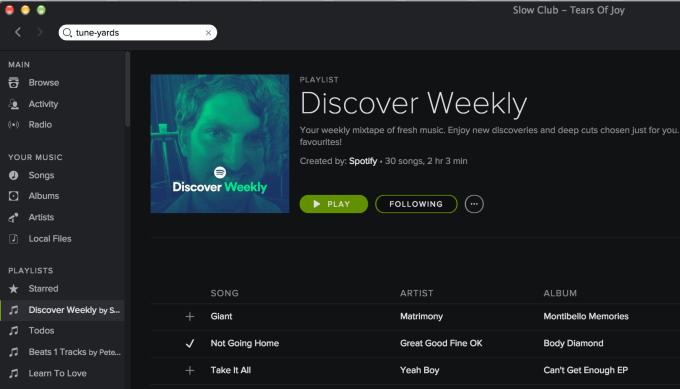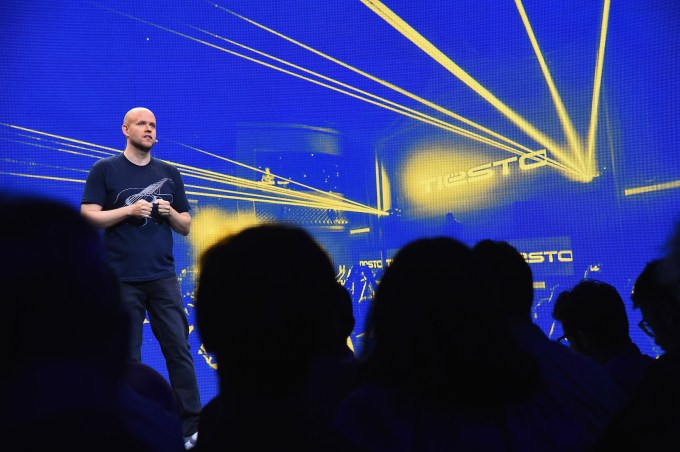The problem with Spotify going public has always been that the record labels own the music. They force Spotify to pay 70 percent or more of its revenue to them for royalties, and could jack up that price if Spotify got too profitable.
That’s why over the past few years, Spotify has been pushing five different paths to putting pressure on the labels to cut it a better royalties deal. They all hinge around the idea of making the labels need Spotify as much as it’s historically needed them.
When Spotify launched in 2008, it had no power in the relationship since it had so few listeners. It needed to raise over $180 million in its first few years and pay the labels a huge upfront advance on royalty payments to convince them to let it launch in the US. Spotify also had to sell the labels equity so even if it succeeded, they’d be financially protected.
But now that Spotify has grown to 50 million paid subscribers and a huge base of free ad-supported listeners, it’s emerging from the streaming pack including YouTube / Google Music, Pandora, Apple Music, and Amazon so rights owners can’t just favor them instead. Spotify has begun to gain some leverage over the labels so that it can make money without them and they need it to have a hit record.
Here are the five ways Spotify is weakening the the record companies’ iron grip on music:
Dictating The Top 40
Spotify’s Discover Weekly and Release Radar playlists aren’t just some of its most popular and differentiated features. They give Spotify newfound power to choose what artists and songs a large swath of its listeners hear. Instead of focusing on peer-to-peer sharing or direct channels between the artists and the fans, it’s prioritized music discovery methods that put it in control. Spotify wants to take the place of the thousands of radio stations that record labels typically kiss up to.

Scale
Spotify needs all the major record labels to let it stream their content, otherwise its catalogue would be confusingly incomplete. Most listeners don’t know what artists are on which of the three major labels – Sony, Warner, and Universal. So the result of any one of them refusing to work with Spotify is that it would make almost a third of its music unavailable, and drive users to its competitors.
But that was when Spotify had so few listeners that the labels didn’t need it. Now Spotify contributes a big enough percentage of record labels’ total royalties that they have a lot more to lose from cutting it off. As we said above, their artists would suffer from the loss of distribution, but they’d also suffer a loss of revenue. Spotify’s size has made record labels pulling out into either a bad bet or a bluff.
Diversifying Beyond Music
Spotify has to pay out 70 percent of its revenue from major label music, but not from other content types like video and podcasts. That’s partly why Spotify is pouring investment into creating original content like 12 different video series, including Drawn & Recorded about music history. It’s also got a big original podcasts initiative.
Spotify’s original video series Drawn & Recorded tells tales from music history
The more Spotify gets people watching and listening to the content it creates or gets for cheap, the smaller the share of its total earnings it has to pay out to the labels. Meanwhile, it gets to offer exclusive content that doesn’t piss off fans who aren’t subscribed the way Apple Music’s early access to blockbuster albums does. When Spotify first announced it was getting into video, people though it was trying to challenge YouTube or Vevo or even Facebook. Really it just wants to run Netflix’s “Stranger Things” playbook.
Access Restrictions
The biggest driver of Spotify’s success has been its free ad-supported tier that serves as a subscriber acquisition funnel. But some labels don’t want their music available to listeners that earn them less per stream than paid subscribers, at least when it first comes out. Now the Financial Times reports Spotify is in negotiations with labels to allow them to withhold top new releases from the free tier in exchange for better royalty rates.
Essentially, Spotify has built its ad-supported audience to be so big that it can now restrict their access to content as a bargaining chip. Some artists like Taylor Swift have been arguing for this option for years, but now Spotify has the scale to demand a financial incentive in return.
Becoming A Label
If Spotify owns the rights to the music it streams, it’s who earns the royalty payouts. That’s why two sources tell TechCrunch that Spotify has discussed traditional record label-style deals with artists. Musicians who cut these deals could get a cash advance in exchange for Spotify owning a percentage of their recording revenues.

Power To The IPO
 Employing all these strategies, Spotify is now using its leverage with labels to negotiate lower royalty rates. TechCrunch previously reported that Spotify is considering delaying its IPO until 2018 to allow these sources of leverage to grow so it can score a better deal before going public. Spotify declined to comment on this story.
Employing all these strategies, Spotify is now using its leverage with labels to negotiate lower royalty rates. TechCrunch previously reported that Spotify is considering delaying its IPO until 2018 to allow these sources of leverage to grow so it can score a better deal before going public. Spotify declined to comment on this story.
While at first glance, Spotify paying less for per stream might seem worse for artists trying to make a living on music. But the success of Spotify and the path it could forge for streaming services is also in the interest of those artists. Not only could royalty rates start to climb closer to CD sale revenue if it grows big enough. Spotify is also incentivized to help artists use streaming to promote their merchandise and ticket sales where the bulk of their earnings comes from while it takes a cut. It’s becoming the portal to music.
Napster made music piracy mainstream and the record labels sued it to death without a replacement causing users to fragment across underground download apps they couldn’t fight. Now 15 years later, convenience has once again depowered record labels in favor of broad access to the pantheon of music. But this time, 50 million people are paying for it.






























Comment